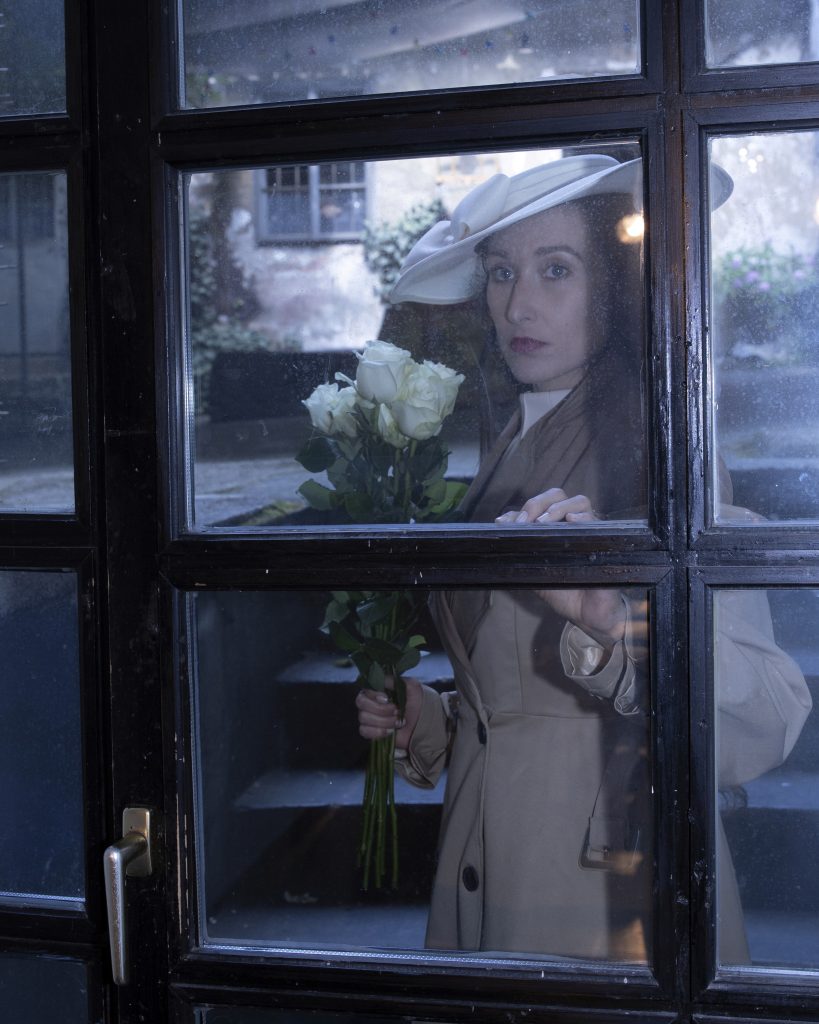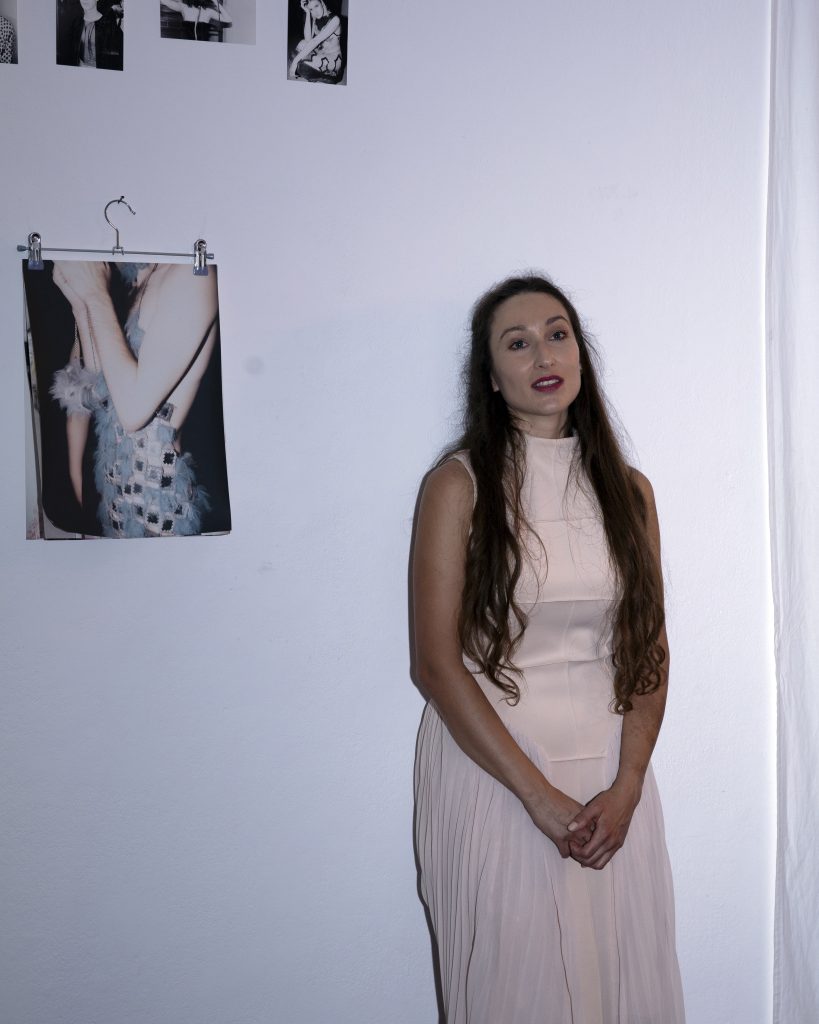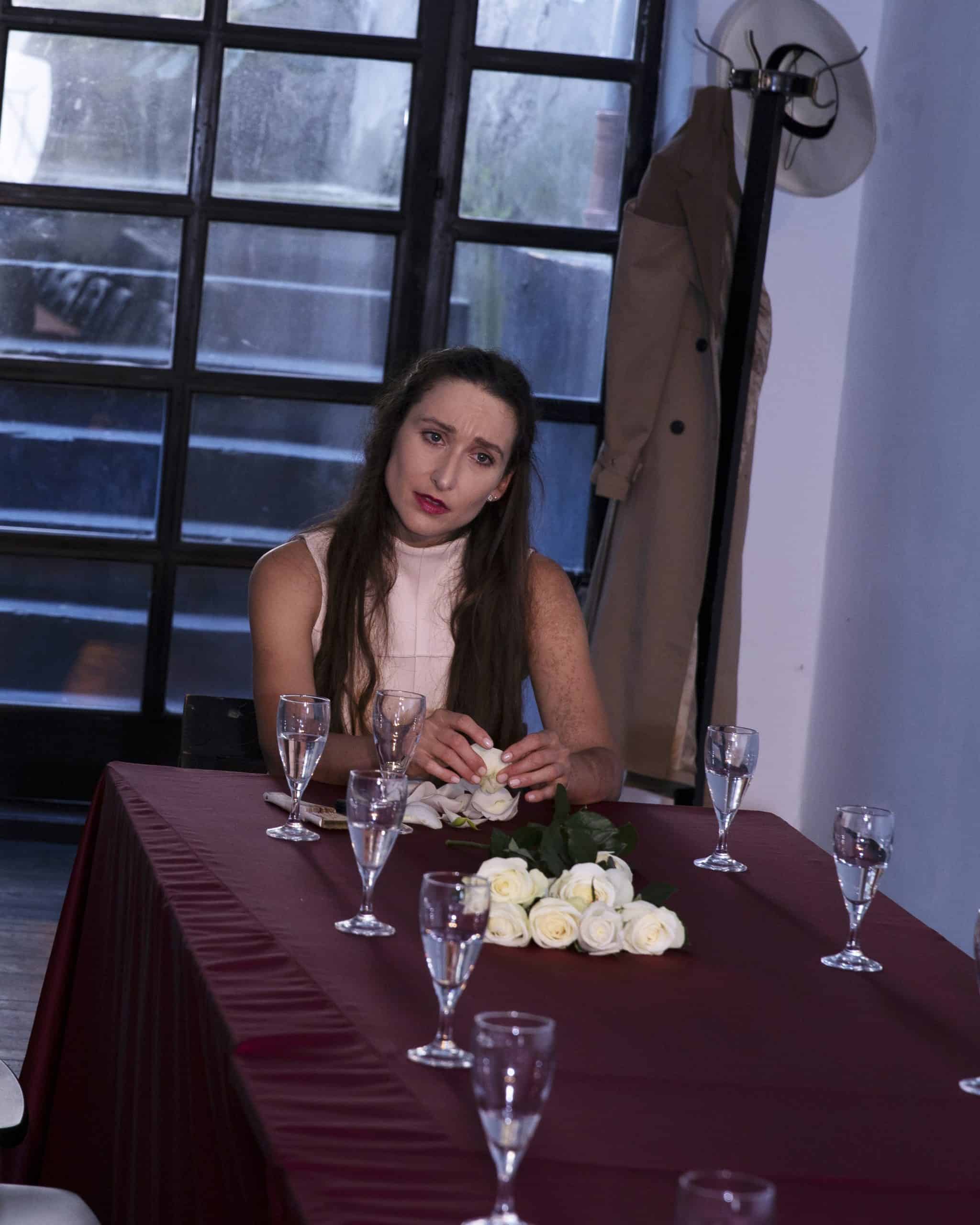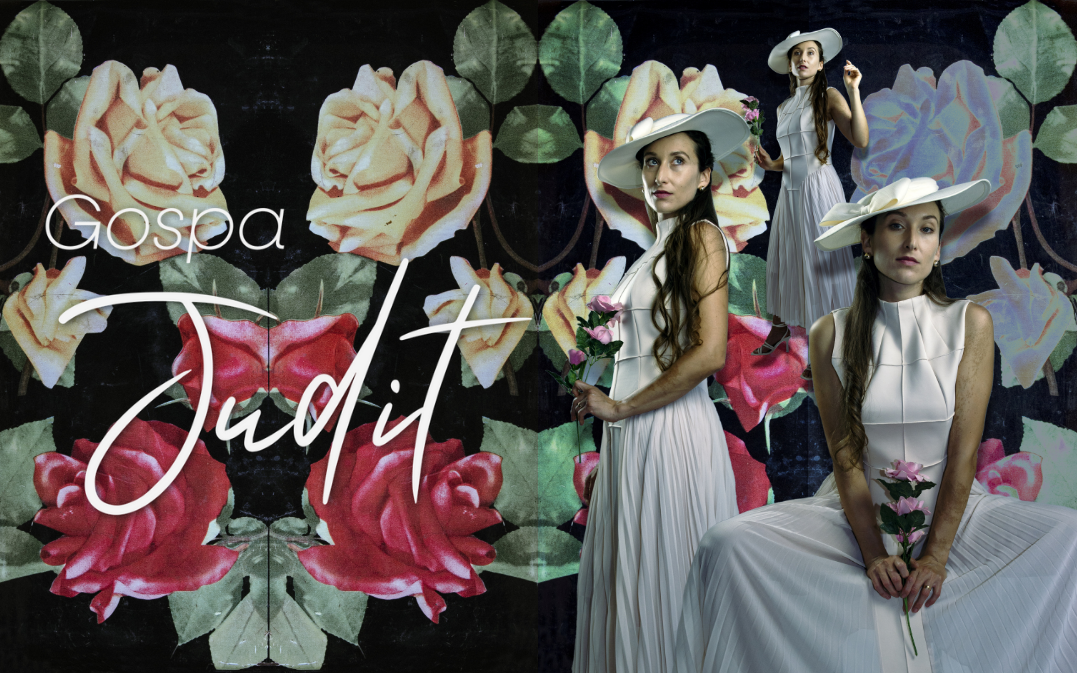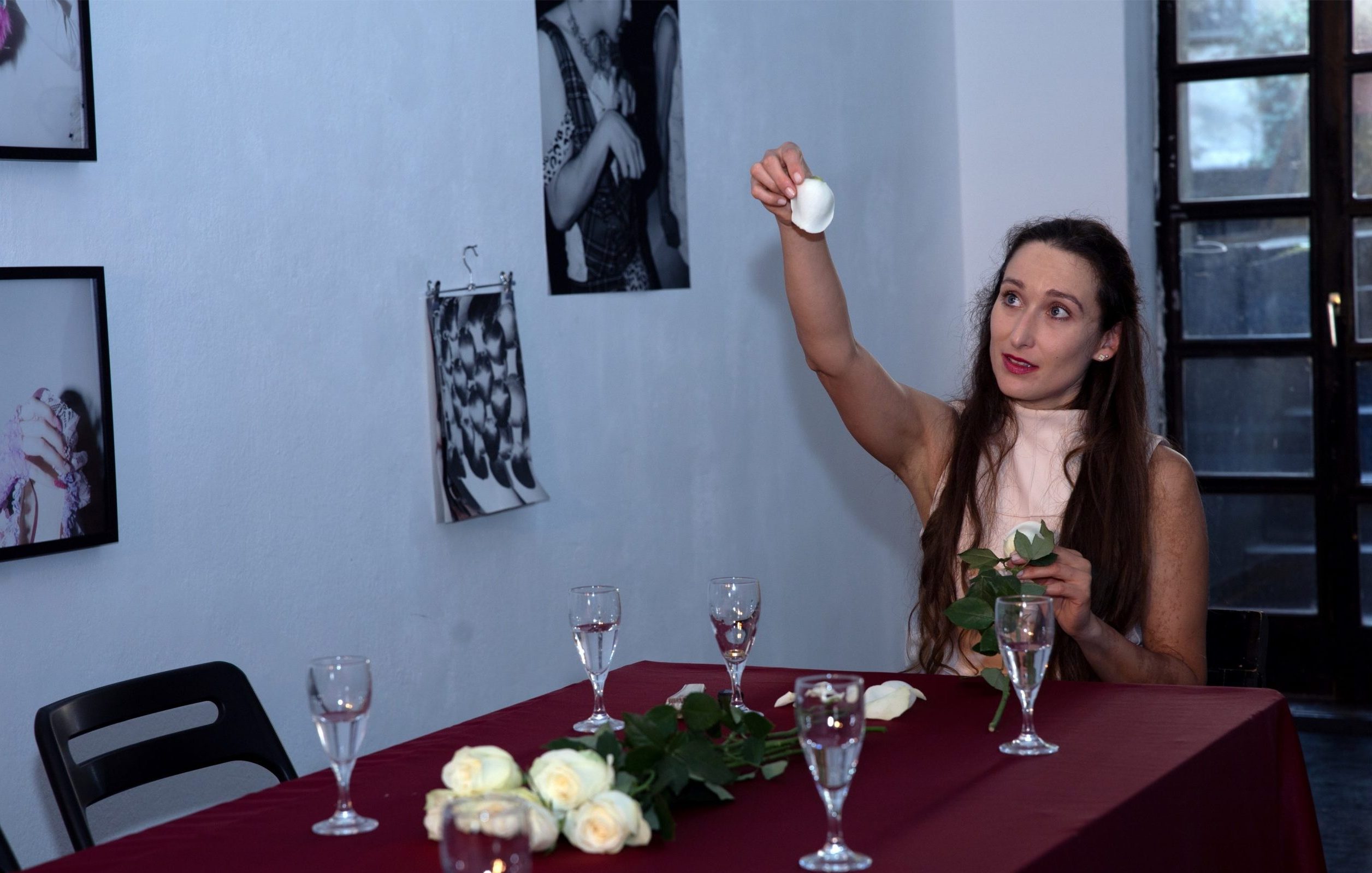Madam Judit
GOSPA JUDIT / MADAM JUDIT
PERFORMANCES:
Saturday, November 9th: ENGLISH PREMIERE at Galerija Škuc
- Wednesday, October 16th at 8pm: Slovenian version at Galerija Škuc
- Tuesday, September 3rd at 8pm: Slovenian version at Galerija Škuc
- Sunday, July 28th at 7pm: Slovenian version at Festival Dobimo se pred Škucem, Galerija Škuc
- Saturday, July 27th at 10pm: SLOVENIAN PREMIERE at Festival Dobimo se pred Škucem, Galerija Škuc
TICKET PRICE €15, discount for students, pensioners and freelance artists €10. Due to the limited seating of the performance, reservations are recommended at info@skuc.org.
Ivan Cankar
Madam Judit
Monodrama, ŠKUC theater
Adaptation and Dramaturgy: Tatjana Doma
Director and Production Designer: Alen Jelen
Costume Designer: Claudi Sovrè
Reader: Martin Vrtačnik
English Translation: Ana Bohte
English Language Consultant: Arven Šakti Kralj
Starring:
Madam Judit: Gaia Visnar
In 1903, Ivan Cankar started writing his Madam Judit, a novel or a satirical story, as literary historians describe this work. Published in 1904, it was a response to all the destructive and negative criticism of his previous novel The Ward of Our Lady of Mercy, which had been released a year earlier. In Madam Judit, he openly criticized the phoney bourgeois society and the morals of the time, and introduced a new character to Slovenian literature – an ethically positive character.
In all his works, Madam Judit included, Cankar intertwines and develops two thematic aspects: the longing and the socio-political part. This theater adaptation deals mainly with Judit’s longing and her search for love, two powerful drives of the story. Judit, an only child, bereft of motherly love, stems from an intellectual background. As her father is a teacher, she is well-read and is introduced into high society by her ageing husband. Having entered a loveless marriage at a very young age, she despises her unfaithful husband, moreover, she is disgusted by him. Much like Ema Bovary and Anna Karenina before her, Judit is not afraid to sever all the constraints of a sham marriage and follow her heart. Still pining for pure love, she seeks it in many men, but they turn out too weak to be able to reciprocate this love. So, she keeps yearning … In her longing and search for love, Judit is quite a modern character, not submitting to compromise, futile or untrue relationships. She does not bow to the expectations of society, but bravely embarks on the lonely path towards her ideal of love, only to end up in resignation and disappointment. Is real, pure love between two people even possible when all of society’s demands are taken into account?
Financially supported by Ministry of Culture and City of Ljubljana.
